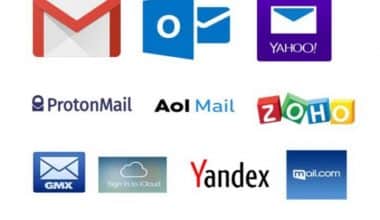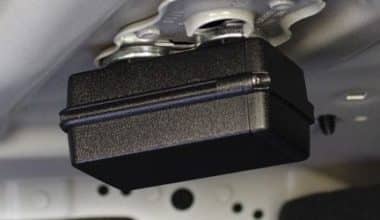Whether you are a small business owner or a large corporation, ensuring that every candidate gets a response or rejection letter within a few days of their interview is essential. Rejection letters or emails are an unavoidable part of the hiring process. They should be written professionally and courteously, with some personal detail and possibly future tips. This article contains information on what you need to know about a job rejection letter after an interview including an example of short and detailed rejection emails or letters, that will signify the nature of the employment process.
When Employers Notify Applicants
Employers do not always offer applicants the courtesy of informing them of their status in the hiring process, however, some do:
- Some employers notify all applicants of the status of their applications.
- Some organizations notify applicants or send a rejection letter to those who were not selected for an interview, while others just contact the candidate with whom they want to discuss the job.
- Some firms do not even notify interviewees that they were not chosen for a second interview or the job.
- Other companies may issue rejection letters to applicants who are not chosen for a post following the interview process.
If the organization alerts applicants, you may not receive a letter immediately following your interview.
Why Good Rejection Emails are Important
It is never simple to write a rejection email after an interview. Rejecting an anonymous email application is one thing; rejecting actual people with outstanding qualities and promises is quite another. This emphasizes the need of handling candidate rejection professionally.
There are various causes for this, including:
- Candidate relationships: Even if they didn’t receive the job, you should keep in touch with your candidates. You might wind up working with them one day – they came to the interview for a reason, after all.
- Improvement: Giving applicants feedback after the interview is an important part of keeping a strong relationship with them. This can help candidates develop their abilities and raise their chances of being hired — and the more experience they gain, the more likely they will be a good fit for your organization in the future.
- Reputation: You want your organization to be known as the best place to work. Maintaining that reputation requires being professional, polite, and constructive to those who did not make the cut.
Now that we’ve established the importance of good rejection emails, let’s have a look at our rejection letter template.
The Don’ts of a Candidate Rejection Letter After Interview
Despite having access to similar tools, many recruiters continue to make typical errors when composing rejection letters following interviews.
We’ve developed a list of applicant rejection letter don’ts to help you avoid making the same mistakes when sending a job rejection letter to a candidate after an interview must have taken place. Let’s get started:
#1. Don’t use email if the candidate has been to several interviews
Rejection letters should be used primarily for candidates who did not advance to the second interview. Candidates who made it to the second round of interviews have put in a lot of effort in the hiring process. Pick up the phone instead of sending an email and remind them how much you value and appreciate their time and efforts.
#2. Don’t leave the candidate waiting for a response
Even when dismissing a candidate, it is critical to provide a positive candidate experience. Don’t keep candidates waiting for your response. They’re most likely involved in other employment processes at the same time as yours, so notify them through a rejection letter as soon as you’ve chosen not to proceed with them after the interview.
#3. Don’t use disrespectful language
It probably goes without saying, but don’t be impolite. A nasty or disrespectful response is not only discouraging for the candidate, but it can also drastically harm the reputation of your firm. Inappropriate rejection emails have a habit of going viral, which is something you don’t want to be known for.
#4. Don’t be vague about the reasons for rejection
While your response should be professional, it should also be honest and transparent. Provide concrete feedback to the candidate in a polite manner.
#5. Don’t give the candidate false hope
Make sure the candidate understands why they were rejected, and avoid making promises you can’t keep. Giving the candidate false optimism can harm their chances of securing another employment, as they may turn down other opportunities in the hopes of working for you.
#6. Don’t burn any bridges
A candidate who isn’t the appropriate fit today can turn out to be the perfect match later. Make the rejection not so final that people are discouraged from applying again.
Tips on How to Write a Job Rejection Letter After an Interview
Follow these simple steps to write your job rejection letter or email following an interview with a candidate:
#1. Personalize your interview rejection letter
While you may use the same form for all rejection letters, take the effort to personalize it by mentioning the candidate’s name, position, and something you remember from your interactions. For instance, “We were impressed with your experience launching your own business.” Alternatively, “It’s always great to meet a fellow state university alum!”
This can go a long way toward developing a strong staff brand and making the candidate experience rewarding.
#2. Keep the interview rejection letter concise
It is critical to be concise. Don’t make the candidate read several paragraphs of praise for their talents and expertise only to find out they haven’t been chosen to proceed. Respect their time by delivering the news early in the letter.
#3. Be professional and considerate in your rejection letter after the interview
While the applicant is likely to be dissatisfied regardless of how you frame the interview rejection letter, employing professionalism and thoughtfulness helps mitigate any negative feelings they may have against you or the firm.
Consider adopting the “sandwich method,” which involves sandwiching unwelcome news between two uplifting messages. Consider beginning by telling the applicant that you’re pleased by a specific talent or expertise. Next, inform them that you have decided to proceed with another candidate. Finally, thank them for their time and wish them all the best in their future endeavors.
#4. Send the interview rejection letter as soon as possible
According to an Indeed survey, there is a gap between the average time employers claim it takes to respond to applications and the time applicants say they wait to hear back.
A rejection letter will often provide an applicant with the push they need to pursue other, better-suited possibilities.
#5. Consider giving interview feedback
Consider giving feedback from the full interview in your interview rejection email or letter to demonstrate to each prospect that you take their interview seriously.
Positive feedback can help cushion the blow of an interview rejection letter, while constructive criticism can assist the candidate to learn what to avoid or modify in future interviews.
Taking notes throughout the interview, emphasizing an applicant’s qualities, and avoiding comparison with other applicants are some guidelines for offering successful interview feedback.
What to Do if You Don’t Hear From an Employer
What should you do if you do not hear back from an interviewer? Following up on the status of your application is reasonable, especially if you are juggling many job applications or offers or need to make an instant decision on another employment offer.
Following up with a thank-you email immediately after an interview is a particularly effective strategy because it allows you to remind the employer of your qualifications, answer any questions you feel were not fully addressed in the interview, and keep you “top of mind” as employers make their hiring decision.
It is also OK to contact the company again after two or three weeks if you have not received a response.
Example of Rejection Letter After Interview
If a company does send a job rejection letter after an interview, here’s an example of what you might get if the organization decides not to pursue your candidacy for a job.
Rejection Letter After a Job Interview Example
Dear Mr. Deloatch,
Thank you very much for taking the time to interview with us for the Customer Service position. We appreciate your interest in the company and the job.
I am writing to let you know that we have selected the candidate whom we believe most closely matches the job requirements of the position.
We do appreciate you taking the time to interview with us and encourage you to apply for other openings at the company in the future.
Again, thank you for your time.
Sincerely,
Carolyn Zho
Rejection Letter After a Job Interview Email Example
Subject: Marketing Associate Position
Dear Ms. Hagardon,
I appreciate you taking the time to meet with me to discuss the Marketing Associate position at ABC Company. Your time and interest in the position are much appreciated.
I would like to inform you that we have filled the position. However, we will keep your application on file for consideration if there is a future opening that may be a fit for you.
Again, thank you for meeting with me.
Best regards,
Samantha Hancock
Rejection Letter After a Job Interview Email Example
Dear [ Applicant’s Name],
Thank you for your interest in the role of [Position Name].
Unfortunately, your application has been unsuccessful at this time.
We appreciate the time and effort you placed into your application and enjoyed meeting you.
Regards,
Samantha Hancock
Should a Rejection be a Letter, Email, or Phone Call?
Nowadays, the bulk of rejection letters are received via email. After all, nearly 90% of job applications are submitted via a website or email!
However, in very formal instances, a letter can be delivered through the mail to an applicant’s address. This can occur when an application must be sent via letter in the first place.
A phone call is best for a candidate who has put in a lot of time and effort in the recruitment process. The same best practices apply to rejection phone calls, where it’s critical to have at least one piece of constructive criticism prepared and to thank the applicant for taking the time to learn about your company. Make sure you end the call on a positive note and answer any questions they may have about what went wrong.
How Do You Politely Reject a Candidate After an Interview?
[Name of Candidate], Thank you for meeting with our team about the [job title] post at [business name]. It was interesting to hear more about your abilities and achievements. Unfortunately, you were not chosen for further consideration by our team.Do Companies Inform Rejection After Interview?
The hard truth is that in most firms, applicants are rapidly shortlisted after interviews, and recruiting a new employee does not take long.
What Do You Say After an Interview Rejection?
A professional greeting. A sentence thanking them for the interview opportunity. A few sentences expressing your want to be considered for future positions. A few sentences expressing your unhappiness and soliciting comments.
How Do You Know If a Job Rejected You?
Here is a list of possible indicators that you did not receive the job:
- The interviewer didn’t express any interest.
- The interview was short.
- The employer cancels the interview.
- The recruiter mentions they’re still accepting applications.
- You’re unable to meet the requirements of the position.
How Do You Gracefully Reject a Candidate?
Here are some tips for maintaining positive ties with rejected candidates:
- Reject candidates as soon as possible.
- Personalize your communication.
- Give honest (but useful) feedback.
- Open up lines of communication.
- Ask for candidates’ feedback.
How Do You Write a Polite Rejection Letter?
Examples of how to write a courteous rejection letter include:
- Create an informative subject line.
- Thank the candidate for their time.
- Tell them you’re no longer considering them for the position.
- Explain why you aren’t considering them.
- Offer some positive aspects about their qualifications or interview.
How Do You Decline an Interviewee Professionally?
How to politely deny an interview include:
- Respond quickly, but not too quickly.
- Be courteous and show gratitude
- Keep it light on details.
- Recommend someone else, if you can.
Conclusion
An after-interview rejection letter is an inescapable part of the employment process. It’s critical to manage them properly – even if you’re rejecting a prospect, you want to deliver a positive candidate experience. It’s never fun to send rejection letters, but we hope this article makes it a little simpler for you.
Related Articles
- Best Sales Tips For Beginners And Pros: Detailed Strategies
- COLD CALLING: Cold Calling Strategies 2023
- SALES SECRETS: The Hidden Sales Secrets That Increase Profit.
- Insufficient Funds: A Definitive 2022 guide {updated}
- The Ultimate Guide To Guest Posting






